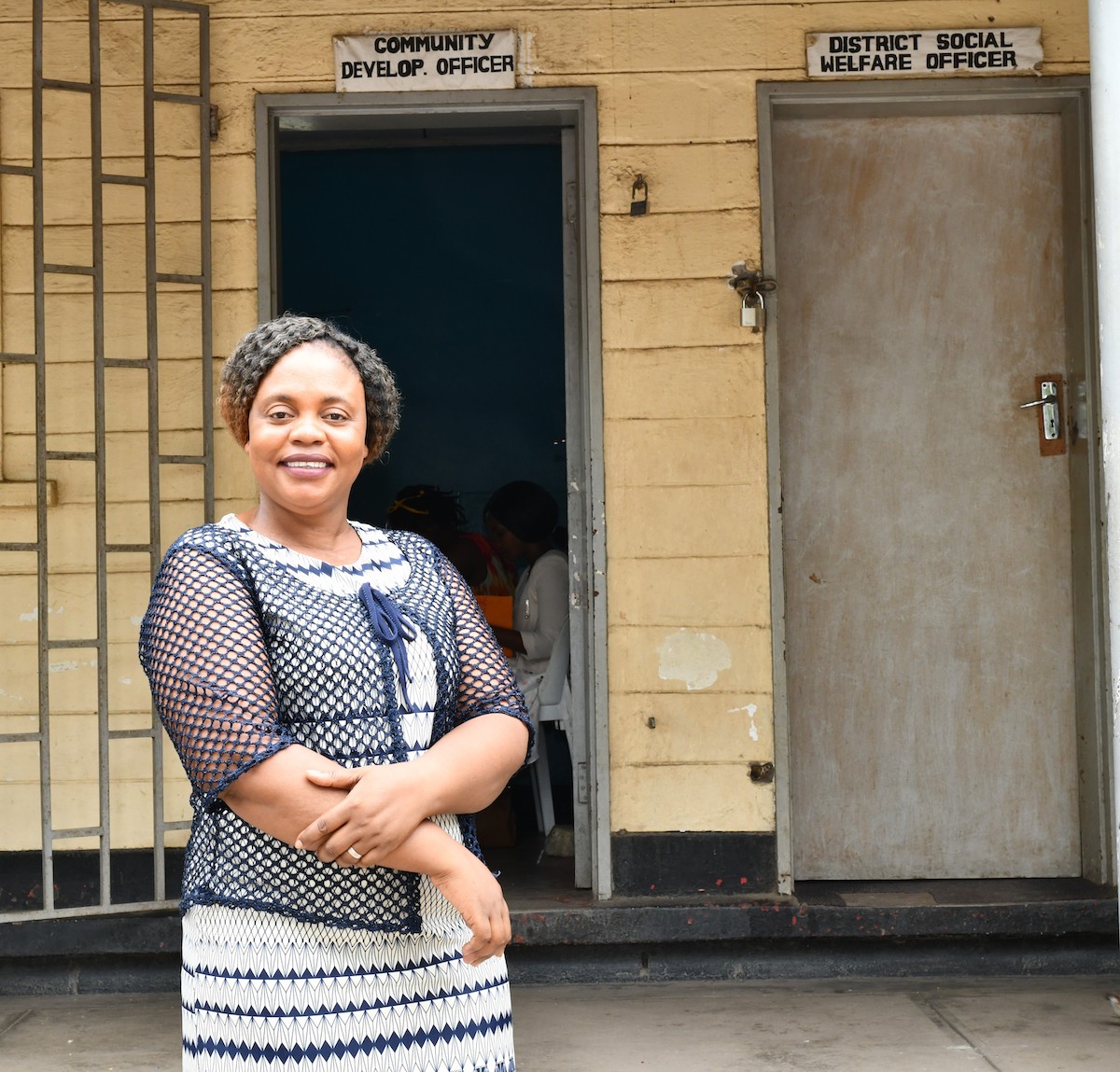From Where I Stand: “Women are no longer afraid to take up peacemaking roles”
Date:
Deborah Julio,36, is the Chair of Women’s Movement in Mangochi District, Malawi and Secretary of the District Peace and Unity Committee (DPUC). She is one of the women currently involved in peace and conflict mediation in the borderland communities between Malawi (Mangochi) and Mozambique from support from UN Women Malawi.


Where I am from women are often not given a role in mediating or resolving conflicts. In my community, women are relegated to the role of spectator when it comes to promoting peace and unity. So, my selection as a member of the District Peace and Unity Committee (DPUC) and Women’s Movement was met with skepticism by some male council members.
In the past, religious beliefs and a prevalent paternalistic culture hinders women from interceding on challenges and issues, to build peace or advocating for peace in home district of Mangochi which shares a boundary with Mozambique. The UN Women training on the conflict prevention and border security measures which I participated in August 2023 was a game changer in my life. I now have an understanding of the principles of peace, as a mediator, I can identify challenges and opportunities other women mediators face in conflict prevention and border security in Mangochi which is close to the Mozambique border. Through this group or women, it is easy to share our own experiences and best practices in mediating conflicts with different communities. Through the training, women are no longer afraid to take up peacemaking roles. Women are meaningfully participating in mediation processes. Recently, our women’s group resolved a religious conflict between fishermen which had started as a fishing territorial-related conflict. I was part of the team that mediated discussions on the issues, negotiated and facilitated dialogues between the two parties involved. Within a month the issue had been resolved and the fishermen now work in harmony.
A key thing that I have learnt is not to underestimate the power of gender-responsive mediation which is important in dealing with the different needs, interests and perspectives of women and men in conflict situations. A man in Katuli area in eastern Mangochi wanted to marry a second wife, but his first wife encouraged him to marry his biological daughter. The wife claimed that there was nothing wrong with marrying his own daughter, instead of marrying another woman. The wife’s suggestion was against the constitution, which bans incest and protects the rights of the child. Our women’s movement group learned about the case and intervened, especially looking at the needs of the girl child and prevented the child marriage. We sensitized the couple and surrounding communities on the legal and moral implications of incest and the consequences of child marriage. We were also able to report the case to relevant government who are monitoring the family to avoid potential threats to the girl.
Women movements now spearhead conflict prevention, peace building, reconciliation. Peace is a tool that is needed, and my dream is that the whole district is at peace”.
Deborah Julio,36, is the Chair of Women’s Movement in Mangochi District, Malawi and Secretary of the District Peace and Unity Committee (DPUC). Through the Strengthening Malawi’s Peace Infrastructure for conflict prevention and sustaining peace in borderland districts project, she was trained as an agent of peace at a district level. This project seeks to strengthen and build the capacity of national and subnational infrastructures for peace and conflict prevention, with a special focus on borderland communities. The project also aim to strengthen existing mechanisms to prevent sexual and gender-based violence and women and girls’ access to safe spaces in target districts, and strengthen the capacities of youth and women-led organisations and networks in the target districts to support their active participation and representation in decision-making processes and socio-economic opportunities. Deborah’s story is related to the Sustainable Development Goal (SDG) 5, which promotes gender equality and women’s empowerment , including in leadership, participation and ending violence against women. It also contributes towards SDG 16, which promotes women’s role as peacebuilders.